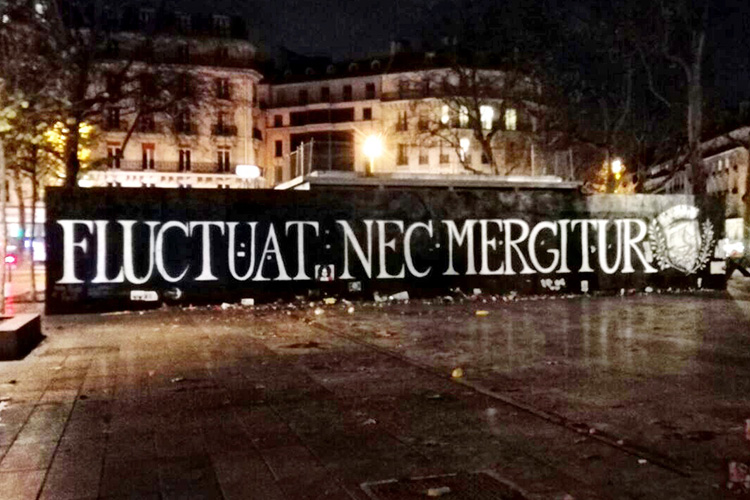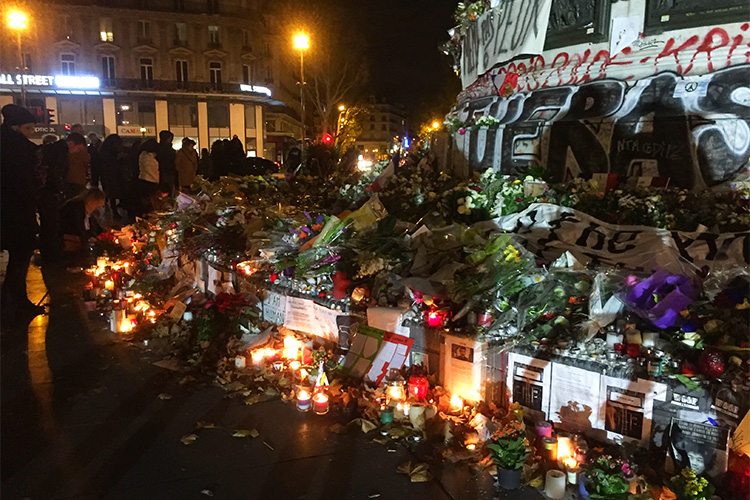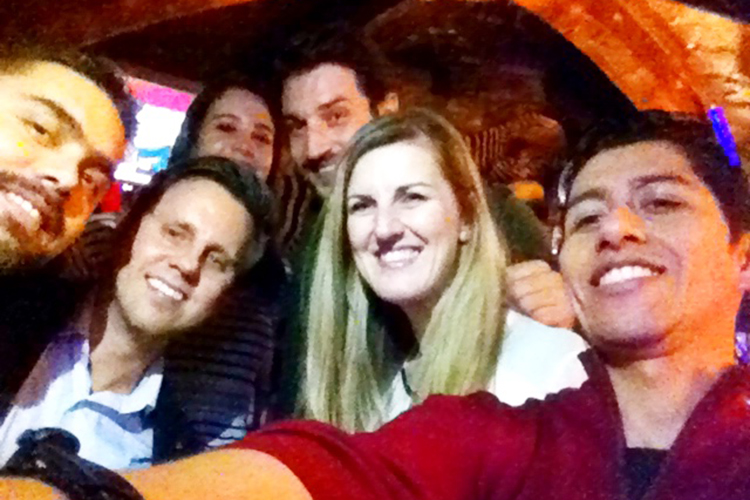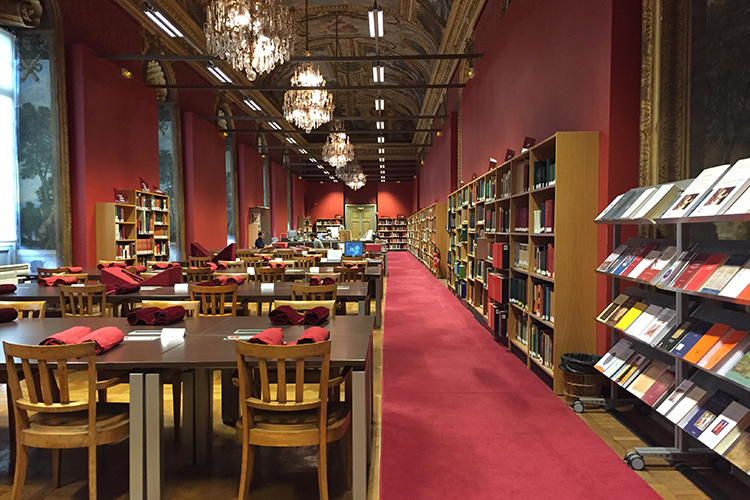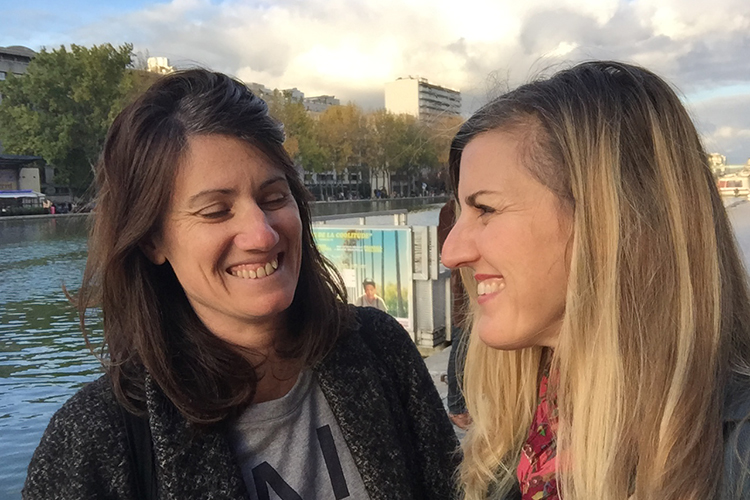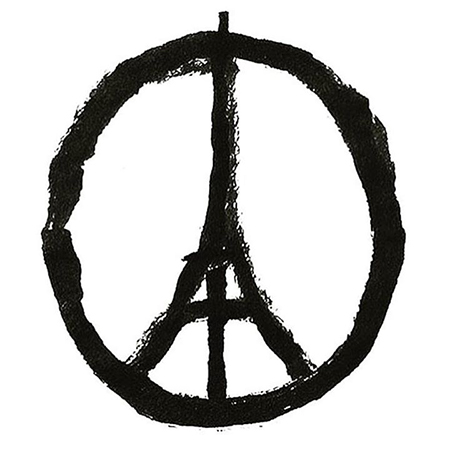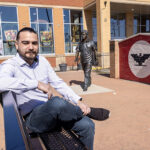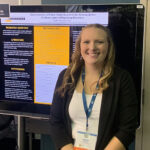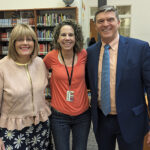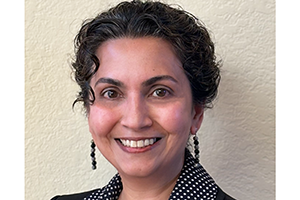Tami Williams’ soft, calm voice rarely betrayed the anxiety that her words conveyed as she spoke by phone about the Friday, Nov. 13, terrorist attacks in Paris and their aftermath.
Williams, an associate professor of English and Film Studies, is on sabbatical in Paris, in part to research turn-of-the-century performing arts and their impact on French art cinema. She had recently been thinking about connecting that work to contemporary and global themes in cinema.
After the attacks, she said, scholarly endeavors were pushed from her mind.
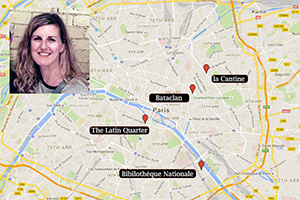
Williams had been in the Latin Quarter that Friday evening for a gathering of expatriates organized online; she planned to celebrate her French roommate’s birthday later at a restaurant on the rue de Charonne. A television tuned to the France-Germany soccer match showed reports of the attacks.
As the enormity of events became clear, she realized that one of the attacks was just five minutes from her home, and in the neighborhood where she was to meet her friend.
“She texted me that she was fine,” Williams recalled, but another issue loomed: “These events were taking place between where I was and where I live. I realized I couldn’t go home.”
Williams spent the night in the Latin Quarter with the group of people she’d met. She felt safe, though unable to sleep. The evening’s events seemed distant, abstract, but when a passerby on the street below shouted “Allahu Akbar (God is great),” her sense of security evaporated.
“I thought, ‘They’re here, the attackers are here,’” she recalled. “It was my first experience of a real visceral reaction to the events.”
“For the first two days I’d wake up and realize I was in a place where I no longer felt safe,” she said. “To be honest, I had always felt safer in Paris than I do in Milwaukee. Paris was a safe haven where I could walk alone at night, because the streets are always filled with people.”
Her return home on Saturday was through deserted streets.
Her worst moment
On Sunday, an artist friend, who recently moved from Milwaukee to Paris, texted her, “The sun is beckoning us to go outside.” Like many Parisians, Williams felt a duty to reclaim the city.
“It was a beautiful day, and it felt like an activist response to go out,” she said.
Williams made a purchase in a clothes shop, but as the proprietor rang up the sale, a woman ran into the shop screaming, “Someone is shooting!”
Williams described a scene in which people were screaming and fleeing up and down the street. Customers and the shop owner crouched down behind the counter.
“I thought, ‘My God, they’re back again, they’re still shooting,’” she recalled. “I felt like a hunted animal.”
It was a false alarm, but also the nadir of her experience following the attacks.
Struggling for normalcy
On Monday following the attacks, Williams returned to her research at the Bibliothèque Nationale de France.
“I felt so happy going through the metal detectors – I felt safe, and was looking forward to a few hours of respite.”
Anxiety resurfaced occasionally when she heard sounds (a clicking camera) or loud noises (a dropped book). She was reminded of a former co-worker, a veteran of the Iraq war, whose PTSD would flare up whenever a pots and pans crashed at the restaurant where they worked.
Monday night she had a belated birthday celebration at home with her roommate, who said it was the first time since the 13th that she “felt like she could breathe.”
And now the future
With the attacks now one week behind the city, Williams has been able to contemplate both the broader meaning of the events, and their impact on her work and the city she lives in.
La Cantine, her neighborhood restaurant, is once again filled, but Williams eats with her back to the wall and an eye on the door. She’s gone out in the evening, but taken a taxi home.
“I had been thinking about connecting my current research to my teaching about contemporary women filmmakers and global cinema, so a lot of what had been on my mind was amplified by what has happened,” she said.
Williams has also reflected on the place of the Paris tragedy among similar events in the world.
“I’ve seen people saying there’s an unequal empathy with Parisians compared to suffering elsewhere,” Williams said. “But I feel that’s a false idea of Paris. The people here care deeply about what’s happening in Beirut, in Palestine and Iraq.”
Parisians’ empathy with one another, and with the world, is a local form of global empathy, Williams said, noting the response of Muslims, Christians and Jews in her neighborhood.
“We have a shared feeling that we’re all targets, all equally vulnerable,” she said. “We’re experiencing something of what people in other countries are experiencing, and we refuse to let these events divide us.”
Williams noted that this global connectedness has nodes within the UWM community.
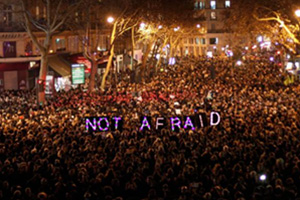
“When I heard of the bombing in Beirut (on Nov. 12), I immediately wrote to one of my students, a doctoral student in creative writing who had returned to Beirut to see if he was OK, if his family was OK,” she recalled. “And he wrote back ‘Yes we’re OK, thank you so much for asking.’
“On Saturday (the next day) he wrote to me, “I’m so sorry about what has happened in Paris, are you OK?”
Williams noted that UWM Library Director Ewa Barczyk and UWM historian Jasmine Alinder were in Egypt when a Russian airliner crashed in late October.
In another Milwaukee connection, English professor Lane Hall’s Overpass Light Brigade has a chapter in Paris and their “We are not afraid” sign from the Charlie Hebdo attack has made a re-appearance online.
“Not only are we all connected, but even people from UWM are in all of these places,” she said.
Williams’ schedule will bring her back to Milwaukee in a couple of weeks, and she’s been doing some soul-searching about her planned return to Paris early next year.
“It’s hard to predict what will come, but there’s a kind of awakening, still some sadness and anxiety, but above all, a real sense of solidarity.”
